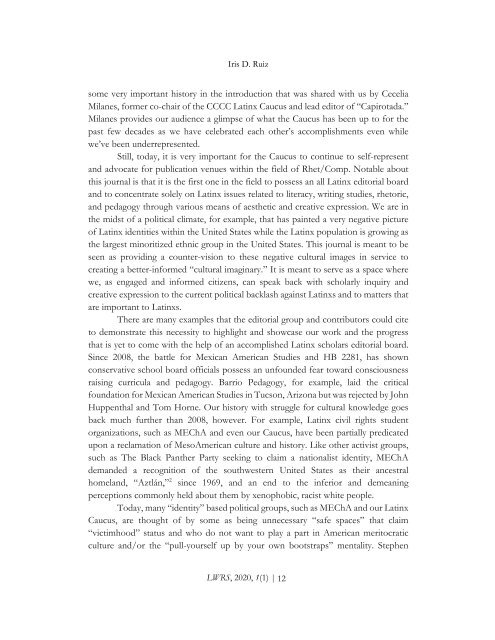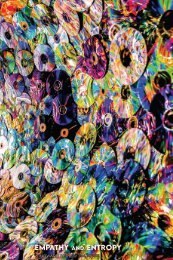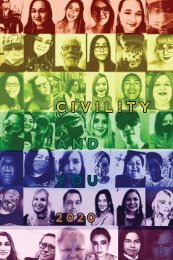LWRS June 2020 Volume 1, Issue 1
Inaugural Issue co-edited by Yndalecio Isaac Hinojosa and Isabel Baca
Inaugural Issue co-edited by Yndalecio Isaac Hinojosa and Isabel Baca
Create successful ePaper yourself
Turn your PDF publications into a flip-book with our unique Google optimized e-Paper software.
Iris D. Ruiz<br />
some very important history in the introduction that was shared with us by Cecelia<br />
Milanes, former co-chair of the CCCC Latinx Caucus and lead editor of “Capirotada.”<br />
Milanes provides our audience a glimpse of what the Caucus has been up to for the<br />
past few decades as we have celebrated each other’s accomplishments even while<br />
we’ve been underrepresented.<br />
Still, today, it is very important for the Caucus to continue to self-represent<br />
and advocate for publication venues within the field of Rhet/Comp. Notable about<br />
this journal is that it is the first one in the field to possess an all Latinx editorial board<br />
and to concentrate solely on Latinx issues related to literacy, writing studies, rhetoric,<br />
and pedagogy through various means of aesthetic and creative expression. We are in<br />
the midst of a political climate, for example, that has painted a very negative picture<br />
of Latinx identities within the United States while the Latinx population is growing as<br />
the largest minoritized ethnic group in the United States. This journal is meant to be<br />
seen as providing a counter-vision to these negative cultural images in service to<br />
creating a better-informed “cultural imaginary.” It is meant to serve as a space where<br />
we, as engaged and informed citizens, can speak back with scholarly inquiry and<br />
creative expression to the current political backlash against Latinxs and to matters that<br />
are important to Latinxs.<br />
There are many examples that the editorial group and contributors could cite<br />
to demonstrate this necessity to highlight and showcase our work and the progress<br />
that is yet to come with the help of an accomplished Latinx scholars editorial board.<br />
Since 2008, the battle for Mexican American Studies and HB 2281, has shown<br />
conservative school board officials possess an unfounded fear toward consciousness<br />
raising curricula and pedagogy. Barrio Pedagogy, for example, laid the critical<br />
foundation for Mexican American Studies in Tucson, Arizona but was rejected by John<br />
Huppenthal and Tom Horne. Our history with struggle for cultural knowledge goes<br />
back much further than 2008, however. For example, Latinx civil rights student<br />
organizations, such as MEChA and even our Caucus, have been partially predicated<br />
upon a reclamation of MesoAmerican culture and history. Like other activist groups,<br />
such as The Black Panther Party seeking to claim a nationalist identity, MEChA<br />
demanded a recognition of the southwestern United States as their ancestral<br />
homeland, “Aztlán,” 2 since 1969, and an end to the inferior and demeaning<br />
perceptions commonly held about them by xenophobic, racist white people.<br />
Today, many “identity” based political groups, such as MEChA and our Latinx<br />
Caucus, are thought of by some as being unnecessary “safe spaces” that claim<br />
“victimhood” status and who do not want to play a part in American meritocratic<br />
culture and/or the “pull-yourself up by your own bootstraps” mentality. Stephen<br />
<strong>LWRS</strong>, <strong>2020</strong>, 1(1) | 12





